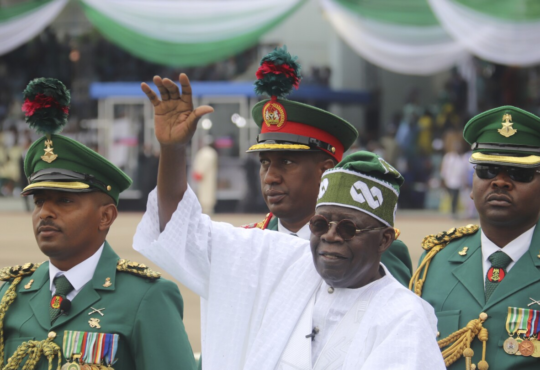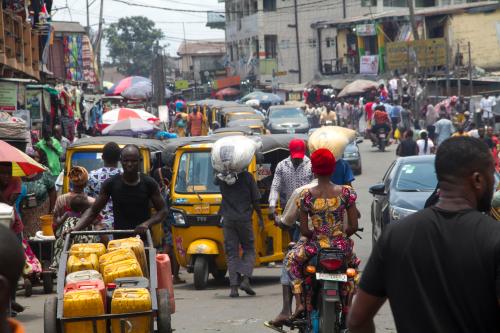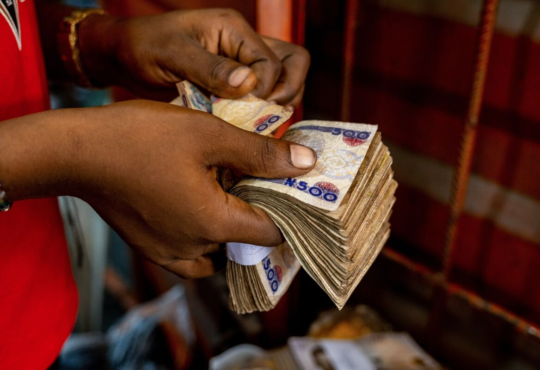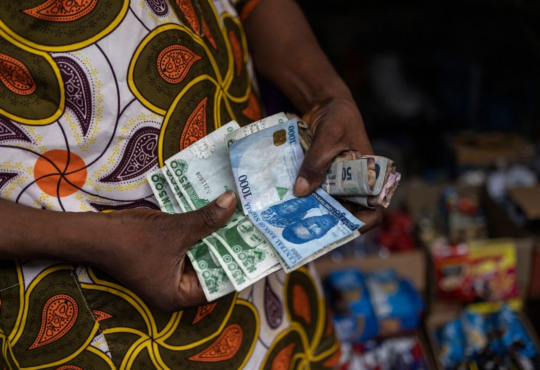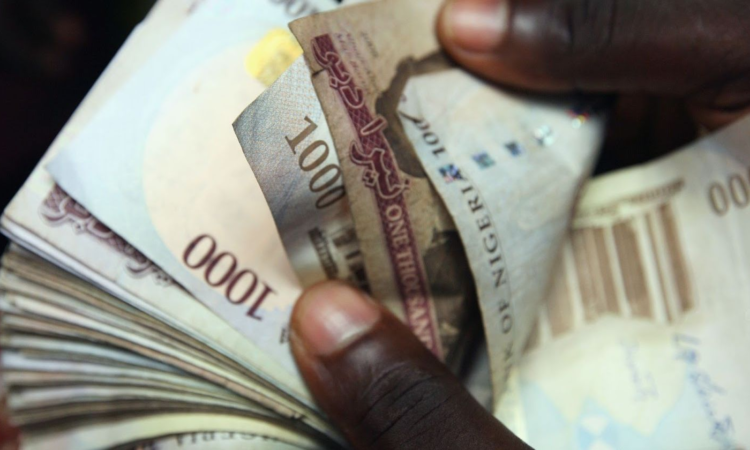
Sign up for Semafor Africa: A rapidly-growing continent’s crucial stories. Read it now.
In this article:
Nigeria’s naira is recovering from record lows hit this year, following interventions by its central bank through interest rate rises and the direct sale of dollars to foreign exchange bureaus.
The naira closed at 1,278 per dollar on April 2, compared to over 1,500 in February, according to the Lagos-based FMDQ exchange that tracks trading data.
Investment management firm Cardinal Stone said in a note last week that the naira had strengthened by 11.4% in official markets since the start of March, making it one of Africa’s top-performing currencies. It also said foreign inflows into Nigeria had increased by $2.1 billion so far this year, compared with $1.6 billion in 2023.
In this article:
The recovery comes after the currency’s value plummeted in the wake of economic reforms imposed by President Bola Tinubu’s administration after he took office last May. He removed a fixed currency peg and scrapped a system of multiple exchange rates, instead allowing the naira’s value to be market determined. The exchange rate was about 755 naira to the dollar in the two weeks after Tinubu took office, but crossed 1,000 naira to the dollar by the end of 2023.
The Central Bank of Nigeria (CBN) has devalued the naira twice in the last year, most recently in January, and hiked the benchmark interest rate by 600 basis points since February to 24.75% to tackle escalating inflation.
Some of the inflationary pressure has been caused by foreign exchange problems. Nigeria has faced dollar shortages in recent years following revenue shortfalls from the oil industry, partly caused by pipeline sabotage.
The CBN currently sells $20,000 to licensed bureau de change traders at a fixed price each week, restoring a policy suspended in 2021. It is also selling more dollars to deposit banks, while revising their codes of operation. Banks operating internationally will now require 500 billion naira ($353 million) as their capital.
Nigeria’s currency depreciated so quickly between October and February that projections of one dollar to 2,000 naira by the end of this year’s first quarter were common and seemed inevitable. The country’s dependence on dollar-denominated imports — especially of petrol, the price of which affects everything from food to transportation — triggered fears of higher inflation and more dire effects on the cost of living.
The central bank’s interventions appear to have been well timed. Apart from the lower exchange rates, the gap between the official and parallel market exchange rates are smaller, indicating less demand for dollars outside bank channels.
Some of the reduced demand may be seasonal: Peak dollar demand for the over 70,000 Nigerians studying abroad occurs in the months leading up to the beginning of fall and spring semesters in North America. But an overall aggressive approach from the CBN, which has included clamping down on cryptocurrency exchange Binance for supposedly amplifying the naira’s weakness by fueling demand for the dollar-pegged USDT coin, has achieved some stability.
That said, the CBN’s defense of the naira will have its costs. The bank gets the dollars it sells to currency changers from Nigeria’s forex reserves, partly funded by dollar receipts from the sales of bonds and treasury bills. Interest to be paid on treasury bills auctioned in the first three months of this year is estimated at 1.01 trillion naira ($777 million).
Financial Derivatives, a Lagos-based consultancy, cited the CBN’s reported settlement of a $7 billion backlog in forward commitments as a reason for more confidence in Nigeria’s central bank.
Goldman Sachs analysts expect the dollar to be valued at 1,200 naira “within the next 12 months,” and Cardinal Stone sees “latitude for further improvements in FX reserves.”
Sign up for Semafor
africa


